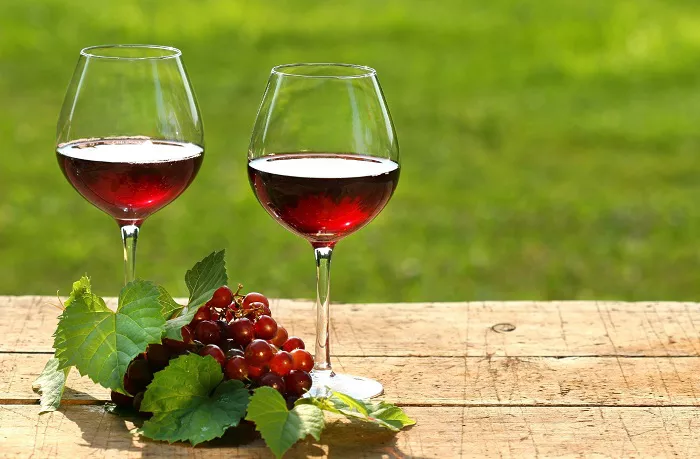Wineries east of the Rockies are increasingly relying on hosted events as a key strategy to boost sales and engage wine consumers. From seasonal festivals to intimate gatherings, these experiences are designed to make wine more approachable and enjoyable, particularly for younger and emerging wine drinkers.
Hospitality experts across the East Coast and Midwest emphasize that intentional, creative events play a crucial role in breaking down barriers often associated with wine culture. Holly Fusco, hospitality manager at Dr. Konstantin Frank Winery in New York’s Finger Lakes region, highlights the importance of crafting unique experiences that leave lasting impressions. “It’s not about casual background music; it’s about creating a memory,” Fusco explains.
Unlike some traditional wine regions on the West Coast, eastern wine regions such as Maryland, Michigan, Indiana, and New York often take a more imaginative and affordable approach. Brian Lillie, vice president of hospitality operations at Chateau Chantal Winery in northern Michigan, notes that smaller, casual events help demystify wine, allowing visitors to ask questions without intimidation. This approach supports a cultural shift toward inclusivity and accessibility in wine tasting.
Melissa Aellen, director of operations at Linganore Winecellars in Maryland and founder of Simple Theory Wine Co., echoes the sentiment. She advocates removing pretension from wine to attract newcomers, offering “Wine 101” classes to foster education in an urban tasting room setting.
Fusco contrasts the East Coast’s evolving wine scene with the more established, upscale Napa and Sonoma markets. While the West Coast often centers on high-end, pricey events, eastern wineries provide polished yet accessible experiences. For example, a Sonoma culinary event might cost over $200, whereas a comparable event at Dr. Konstantin Frank Winery is approximately $100 less, with tasting fees around $18.
Events on the East Coast frequently extend beyond wine, focusing on culture and community. Linganore Winecellars’ annual Caribbean Festival draws attendees from across the globe, many of whom return year after year, turning the event into a family tradition. The winery, founded in 1976, has cultivated a mix of festivals, including reggae and Renaissance-themed gatherings, catering to a diverse audience.
Stacey Weatherholt, hospitality director at Oliver Winery, observes that younger generations, such as Gen Z, seek curated experiences rather than just wine consumption. The 2024 WineBusiness Monthly Tasting Room Survey supports this, with 44% of eastern wineries identifying events as the top method for attracting new, younger consumers.
Smaller, personalized events, such as food and wine pairings for groups of around 30, are particularly effective in creating meaningful connections, according to Lillie. Similarly, Aellen notes that events generate significant revenue and help wineries reach both bottle and case sales, as well as ticket sales for events themselves.
Direct-to-consumer (DTC) sales data reinforce the value of events, with eastern wineries reporting 17% of DTC sales from events in 2024—higher than the 13% reported by wineries in other regions. Fusco confirms that events are a major sales driver for Dr. Konstantin Frank Winery, especially during holiday markets, where wine and merchandise sales surge.
Wineries also leverage events to boost brand awareness, wine club membership, and cultural education. At Linganore, smaller, more intimate events tend to convert visitors into club members, attracting those invested in wine production and education. Weatherholt emphasizes that events serve as a platform for brand stewardship, strengthening community ties and encouraging club member referrals.
Culturally themed events are a signature feature at Dr. Konstantin Frank Winery, where Fusco integrates global wine traditions and cuisines. Past events have included Austrian Heuriger lunches and Georgian Saperavi wine celebrations, often featuring authentic dishes from New York City chefs. These gatherings are designed to connect guests to the origins of the wines and encourage enjoyment through food pairings.
Philanthropy also plays a role, as demonstrated by a benefit event organized in response to the Ukraine war, which raised $10,000 to purchase an ambulance for Ukraine.
Hospitality leaders across the region share best practices for successful events: understanding underserved markets, soliciting consumer feedback, embracing risk-taking, clear goal setting, meticulous logistics, and strategic partnerships with local organizations. Janna Howley, executive director of the Maryland Wineries Association, highlights the value of collaboration, citing partnerships with the Carroll County Farm Museum for wine festivals.
Ultimately, events east of the Rockies are more than sales tools—they foster community, cultivate wine appreciation, and create memorable experiences that transform casual visitors into loyal enthusiasts. Fusco concludes that by combining education with culture and accessibility, eastern wineries are shaping a dynamic future for American wine.
You Might Be Interested In:


